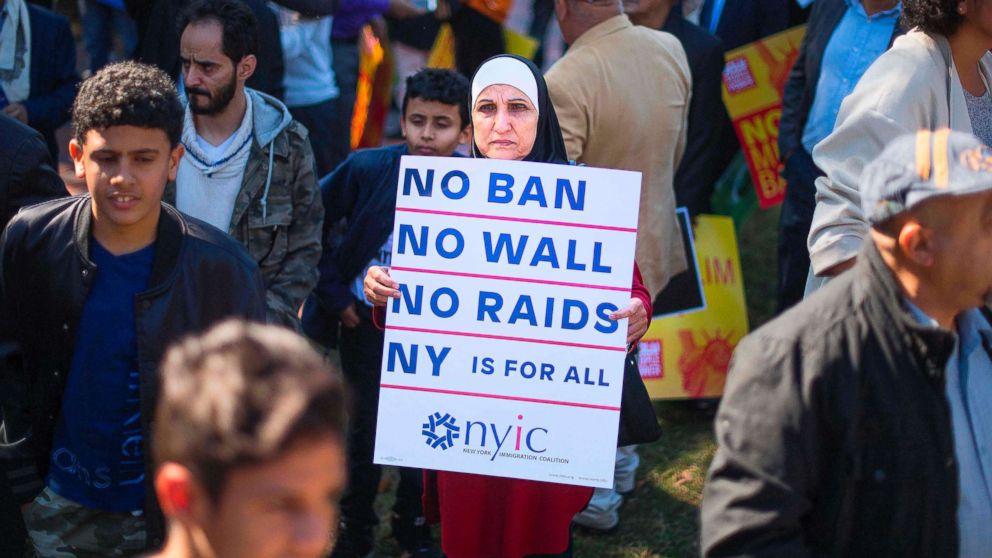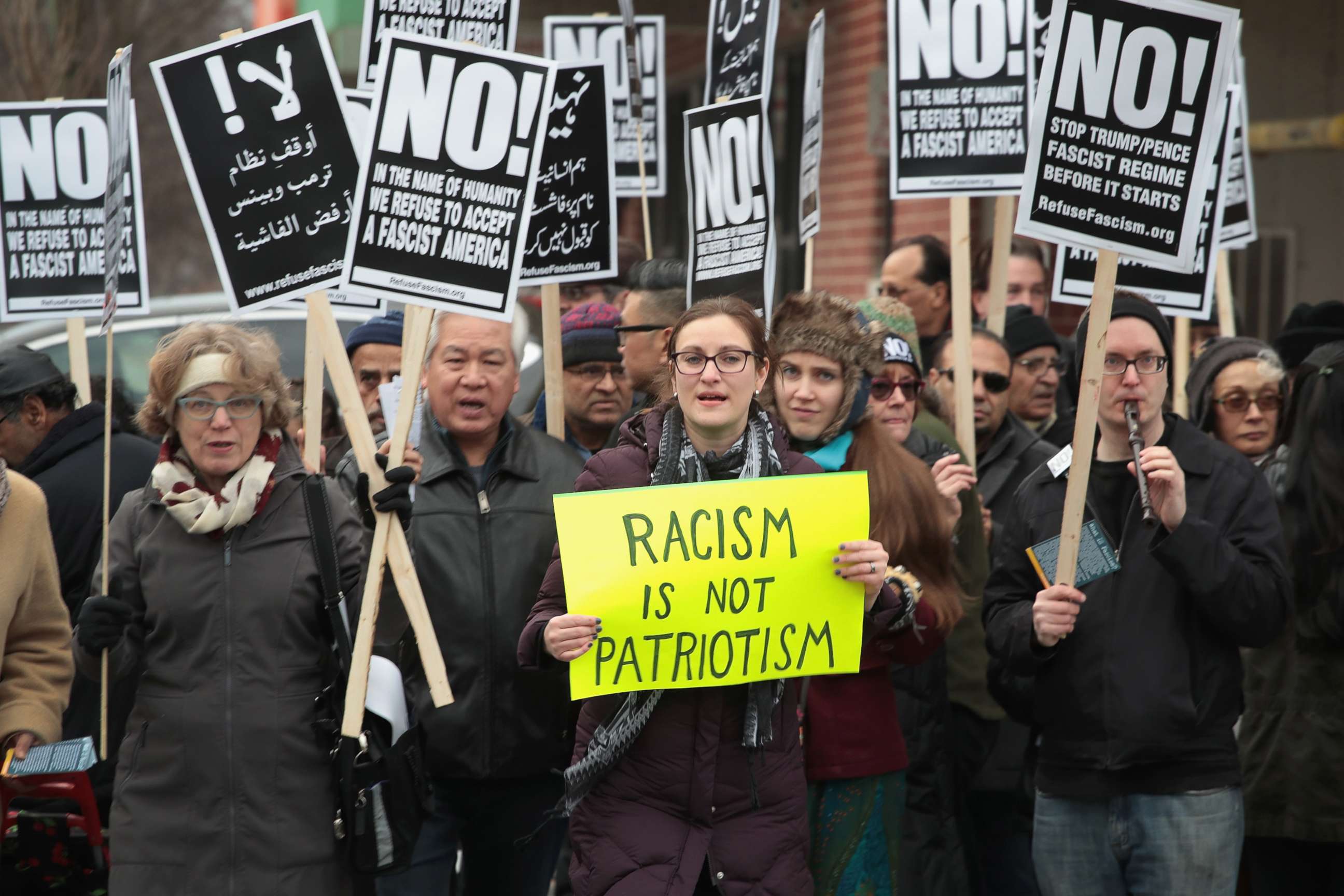Trump administration to announce decision on refugee program after 120-day ban
Tuesday marks the end of the 120-day ban of refugee admissions.

— -- The Trump administration is expected to announce its decision on how to proceed with the U.S. refugee program on Tuesday, which marks the end of the 120-day ban of refugee admissions.
The decision will be the culmination of a review by intelligence and diplomatic officials on whether or not refugees should be allowed to enter the U.S., and if so, what additional restrictions may exist.
The refugee ban was a part of the executive orders that have become known as the so-called travel bans.
At the end of January, one week into his term, President Donald Trump signed an executive order banning all citizens from seven Muslim-majority countries for 90 days, indefinitely banning all Syrian refugees and stopping all refugee admissions for 120 days.
That order was challenged in the courts, and in March, the administration voluntarily withdrew its order and replaced it with one that excised the permanent ban on Syrian refugees but kept in place the 120-day suspension of all refugee admissions.
After lawsuits delayed implementation, the Supreme Court ruled the 120-day suspension could go into effect in June -- and on Tuesday, it expires.
The secretaries of state and homeland security and the director of national intelligence were tasked with determining whether additional procedures identified during the review process are sufficient to ensure the security and welfare of the United States, according to the Department of Homeland Security.
Once a decision is made to resume allowing refugees to enter the U.S., cases in the pipeline will be processed and adjudicated under standard procedures, including any new enhancements that are recommended through the 120-day review process, said DHS.
In the meantime, on Sept. 29, the White House announced that Trump had set the refugee admissions ceiling at 45,000 for Fiscal Year 2018, which began on Oct. 1 -- the lowest cap since the refugee admissions program began in 1975.
Last year, 84,994 refugees were admitted to into the U.S. Around 22,000 of them were from Syria and Iraq. In 2015, nearly 70,000 refugees were admitted.

During the ban, U.S. Citizenship and Immigration Services, which manages reviews and processing for refugees, temporarily reassigned some officers who typically adjudicate refugee cases overseas to assist with processing domestic asylum applications.
The department said it will continue to reassign refugee officers to assist with the asylum division’s backlog of asylum applications in 2018, but a full staffing plan has not yet been put in place.
A spokesperson for the United States Citizenship and Immigration Services said in September that the “growing” domestic asylum backlog is expected to reach 300,000 cases by the year's end. Asylum seekers come to the U.S. and file for asylum from persecution overseas, as opposed to refugees also fleeing persecution who undergo an extensive screening process abroad and are then resettled in the U.S.
U.S. officials have defended the lower refugee admissions cap by citing that backlog, the reassignment of refugee officers and what they say will be tougher vetting procedures that mean applications will take more time to process.




